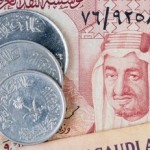The cartoon adorning the cover of the Libyan Stock Market brochure is stark: A man with a frown on his face and his pockets turned inside out explains to his horrified wife how he has been swindled by an unscrupulous broker. The message—that investors should stick with a regulated market—is being pushed hard by the fledgling stock exchange as it struggles to establish itself.
Using cartoons to explain its workings to a public that suffered 42 years of corrupt authoritarian rule is seen as central to growth, says Balaam Balaam, head of the Libyan Stock Market’s disclosure department. “If you don’t have an idea of the stock market, you will never invest in this place. You have to have the knowledge,” he says. “We need to explain to the normal man from the street what we are doing exactly. If the normal man can understand, he can understand he can make money with us.”
Few stock markets in the world are as out of sync with their economies as Libya’s. The country, 10 months after shaking off the dictatorship of Muammar Qaddafi, is rich: It pumps 1.55 million barrels of oil a day and is nearly up to prewar export levels. Bloomberg estimates Libya’s foreign investments are worth $168 billion, and the country has no debt. The nation’s 6 million inhabitants are hungry for new homes, cars, cell phones, public transport, and hospitals, and Libya can afford them. This all spells opportunity for banks, cement makers, construction companies, oil drillers, and other companies that could raise money on the exchange.
Yet Libya’s stock market is tiny—literally. The entire trading floor, in a shopping block in Tripoli’s Highland suburb, would fit onto a basketball court. Twelve companies, mostly banks and the exchange itself, are listed, and the total market capitalization of these stocks is $3 billion, compared with $56 billion for the Cairo exchange. Taxi drivers are unable to find it. The exchange was started in 2007 amid promised reforms, closed when last year’s revolution broke out, and reopened on March 15 of this year.
Few trades occur; most stocks on the big electronic boards move neither up nor down. Watching the chain of 0.0 percents flash on the board, Balaam says things will stay this way unless private money—foreign and domestic—can be attracted to a market now dominated by government funds. “There are no funds, private institutions, not yet,” he says, explaining that many Libyans resist investing after so many years of the authorities preaching that capitalism was the tool of the rapacious West.
Upstairs, Director of Trading Mohammed Salabi says educating the public is only one of the problems. He hefts some bulky files onto his desk. They contain, he says, a complete list of model rules and regulations for the market, drafted by his staff, many of whom have worked in exchanges around the world, including the New York Stock Exchange. But he says the ruling National Transitional Council, which took power last year, has so far shown no interest in adopting such laws or setting up an independent regulator. Without that, he says, few will trust the stock market with their savings. “We are in a difficult reality. The government is still sleeping,” says Salabi.
Sleeping, or perhaps preoccupied by the elections on July 7. The next government, which must draft a constitution to pave the way for full parliamentary elections, will also have to overhaul Libya’s market regulations, its commercial law, and its courts, which need lawyers and judges familiar with the rules of a free market. Meanwhile, those zeroes keep parading across the traders’ screens.
The bottom line: The Libya stock exchange’s $3 billion market capitalization doesn’t reflect the country’s booming oil industry.
(Source: Originally written by Chris Stephen of the Bloomberg Businessweek)





